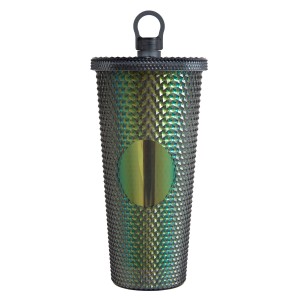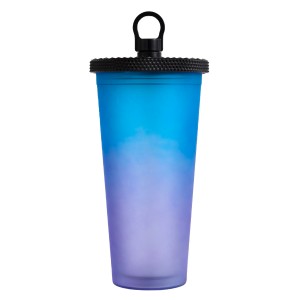With the development of the global epidemic, all walks of life have implemented stricter epidemic prevention measures for product exports, and the water cup industry is no exception. In order to ensure product safety, hygiene and compliance with international trade standards, water bottle manufacturers need to conduct a series of special epidemic prevention tests when exporting. Here are some important aspects of these tests:
**1. ** Hygiene certification: Water cups are products directly related to people’s daily drinking, so it is crucial to ensure their hygiene and safety. Manufacturers usually need to obtain relevant health certifications before exporting to ensure that products comply with international health standards.
**2. ** Material safety test: Water cups are usually made of different materials, such as plastic, stainless steel, glass, etc. Before export, manufacturers are required to conduct material safety testing to ensure that the materials used do not contain harmful substances such as heavy metals, toxic chemicals, etc.
**3. ** Waterproof cup leakage detection: For some water cups with sealing function, such as thermos cups, waterproofing and leakage detection are required. This helps ensure that the water cup does not leak during use and maintains the user’s experience.
**4. ** High temperature resistance test: Especially for thermos cups, high temperature resistance is a key indicator. By conducting high temperature resistance testing, it can be ensured that the water cup will not release harmful substances in high temperature environments and can safely store hot drinks.
**5. ** Anti-bacterial and anti-bacterial testing: In the context of the current epidemic, manufacturers may need to conduct anti-bacterial and anti-bacterial performance testing to ensure the resistance of the water cup surface and materials to bacteria, thereby reducing the risk of cross-infection.
**6. ** Packaging hygiene testing: Packaging is another important link in the product export process. Manufacturers need to ensure that the packaging of water bottles is hygienic and contamination-free to prevent the introduction of any unnecessary hygiene risks during transportation and sales.
**7. ** Epidemic prevention measures during transportation: During the transportation of water bottles, manufacturers also need to take a series of epidemic prevention measures to ensure the safety of products in the global supply chain and avoid the possibility of cross-infection.
**8. ** International Compliance Standards Certification: Finally, exported water bottles usually need to comply with international trade standards and obtain relevant certifications to ensure the legal circulation of products in the target market.
In general, in order to ensure the quality and safety of water cups during global export, manufacturers need to follow international standards and relevant epidemic prevention measures and conduct a series of special testing and certification. This helps to improve the market competitiveness of products and protect the health and safety of consumers.
Post time: Feb-29-2024


